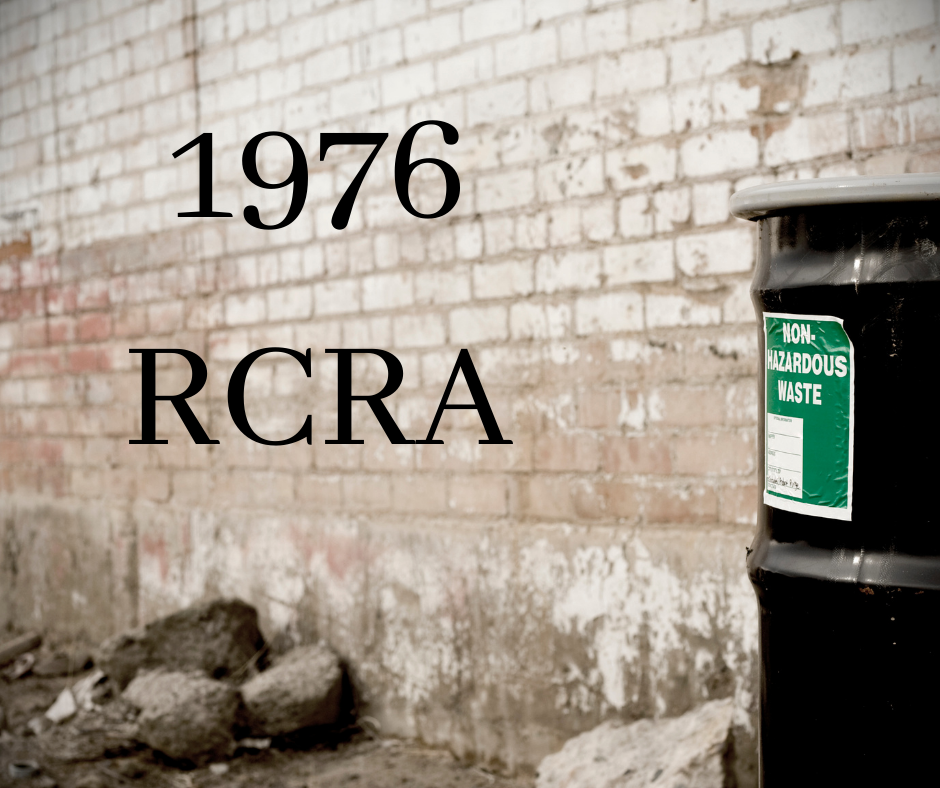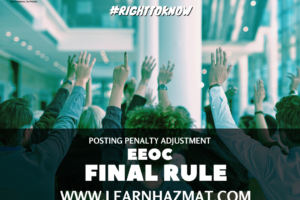How RCRA Training Helps You Reduce Risk
What is RCRA?
The Resource Conservation and Recovery Act is an environmental law that was passed in 1976.
This law was endorsed to properly control and manage both hazardous and non-hazardous waste. The law makes sure that all industries and individuals make all the necessary precautions to responsibly handle, store and transport hazardous waste beginning from its manufacture to its disposal.
It also promotes waste reduction via reuse and recycling. The government arm tasked with the crucial responsibility of executing RCRA is the Environmental Protection Agency.
RCRA Training is Required
Based on federal regulations, even small quantity industries are required to make sure that their service personnel are absolutely familiar with the right waste handling techniques and emergency response measures related to their accountabilities during both regular operations and emergencies.
There are courses and seminars conducted for the purpose of educating people on the rules surrounding the Resource Conservation and Recovery Act or RCRA. Aside from the fundamentals, there are advanced RCRA Training courses that are applicable for state officials, certain organizations and associations, and even other people who have to deal with environmental laws and regulations.
The basic RCRA orientation training contains information provided by the staff of the Environmental Protection Agency (EPA) regarding the proper management of solid and hazardous waste.
They provide a clear overview of all relevant regulatory topics all prepared to be used as helpful resources for individuals who desire to attain a broad understanding of the Resource Conservation and Recovery Act. The RCRA Training program also discusses the Corrective Action Program, which deals with the reforms that EPA is applying in order to speed up of the clean-up of hazardous waste facilities which are operated under RCRA.
How RCRA Training Benefits You
This training is essential for RCRA compliance. Large companies have been fined for not being able to properly train their workers who have been tasked to handle hazardous wastes.
The Act requires that all those who come in contact with hazardous wastes should undergo proper training. Employers should have a written training program that summarizes the type of training each employee has to go through. The document must also clarify which personnel or job functions require training.
RCRA training covers the four major characteristic of hazardous waste: ignitability, corrosively, reactivity, and toxicity. The training should also contain the following elements (and more):
- Waste reception procedures
- Process controls and operation
- Crisis procedures
- Proper waste disposal equipment maintenance
- The creation of a viable emergency and contingency plan
- Proper emergency coordination
- Preparations and communications with local authorities
- Reporting an emergency
- The proper response to explosions, fires, and chemical spills
The training can teach project managers with the knowledge and proficiency required to achieve the GPRA goals in conjunction with the 2020 RCRA Vision objectives for corrective action.
If you’d like to learn more about setting up a customized and tailored RCRA Training program for your organization click here or give us a call at 855-637-9566 to speak with one of our expert consultants. We can schedule your RCRA training onsite, or via webinar or E-Learning for a LMS.




